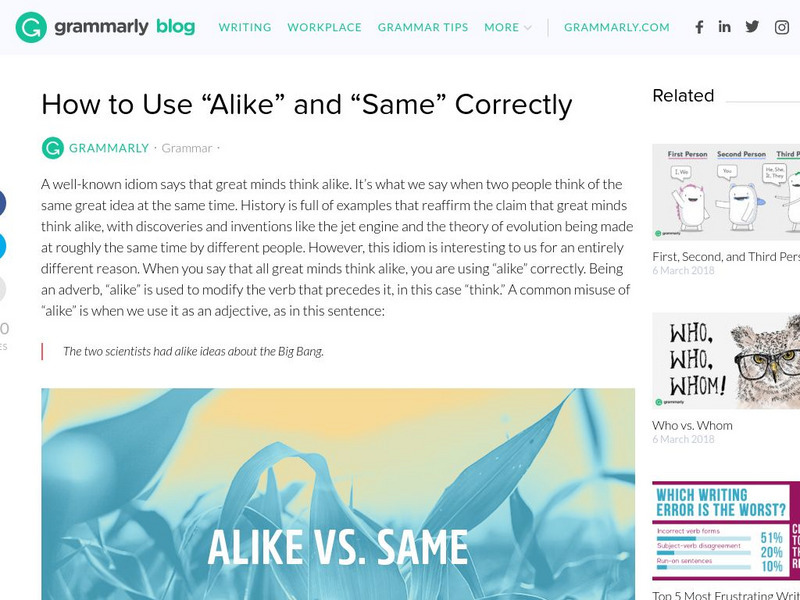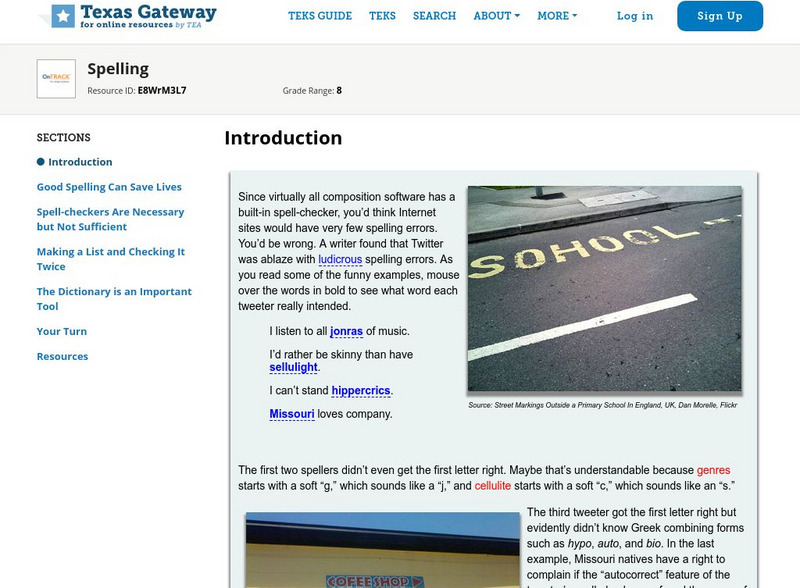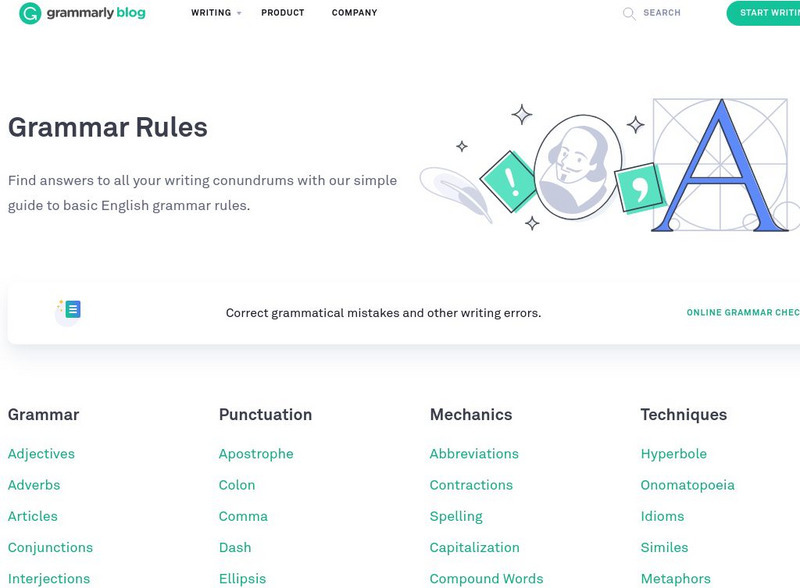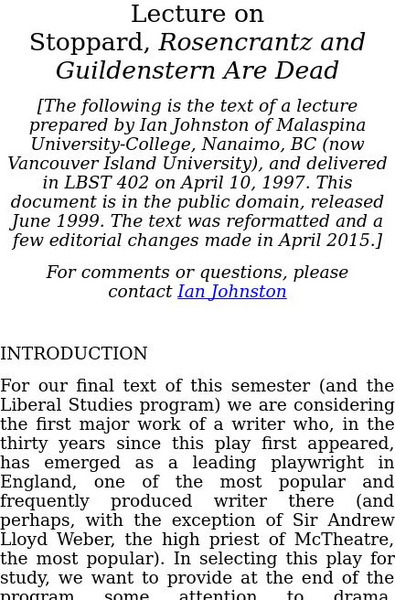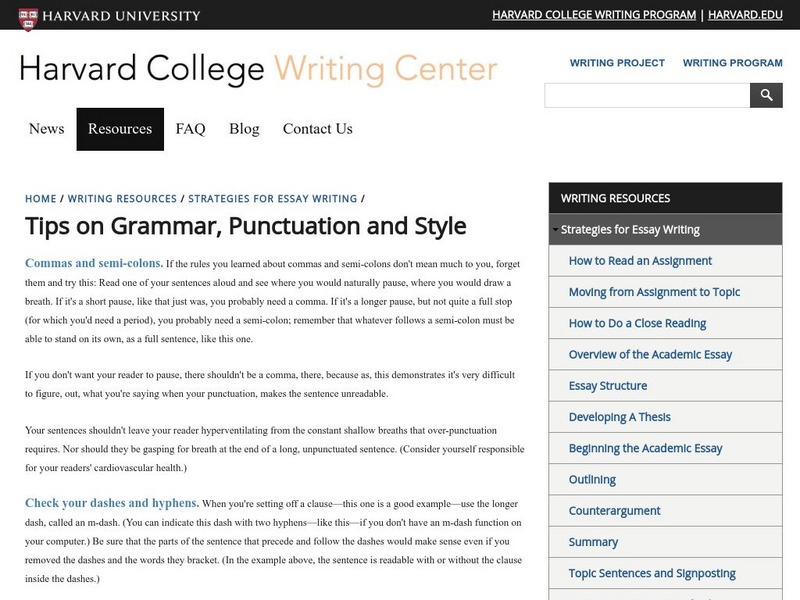Get It Write
Get It Write: One Space of Two After Periods? (And Other Typography Issues)
Read some rules about typography that have changed because of the use of word processing rather than typewriters. This tutorial explains spacing after all punctuation, the use of em dashes and en dashes, and the use of italics.
Get It Write
Get It Write: Hyphenated Adjectives
Find out the rules for using hyphens with adjectives. A clear explanation and several examples are followed by a short quiz to check your understanding.
Get It Write
Get It Write: Anymore and Everyday
Knowing the difference between the use of words adverbially and adjectivally is essentia, especially when using "anymore" and "any more" and "everyday" and "every day." A very good explanation of the usage is given along with many...
Get It Write
Get It Write: Cyberlanguage
Find out what various style manuals recommend in the way cyberlanguage is written.
Grammarly
Grammarly Blog: How to Use "Alike" and "Same" Correctly
An explanation with examples of using the words "alike" and "same" correctly in sentences.
Goodwill
Gcf Global: Semi Colons
Comprehensive tutorial illustrates how to use semi-colons properly.
Texas Education Agency
Texas Gateway: Spelling Rules and Irregular Words
This site discusses exceptions to spelling rule, words that don't fit the typical letter-sound correspondence rules. It provides links to lists of frequently used words such as the Dolch list and 1,000 Most Frequent Words in Middle and...
Capital Community College Foundation
Guide to Grammar and Writing: Quiz on Punctuation
Select the correctly punctuated sentence in each group. Then click on "Submit Application" for the self-monitoring answer key.
Texas Education Agency
Texas Gateway: Spelling
In this lesson, you'll be reminded why spelling is important; a three-step strategy to follow when you edit your written work or the work of your peers; when to rely on the spell-checker and when to override it with your own good...
Texas Education Agency
Texas Gateway: Punctuation
Punctuation is the point of this lesson. You'll learn to put the right dots and squiggles in the appropriate places in your writing. You'll review the conventions of punctuation used in academic English. Then you will apply what you...
Grammarly
Grammarly Blog: Grammar Rules
This is a grammar handbook with links to grammar rules for the parts of speech, punctuation marks, mechanics, sentence style and clarity, composition, academic writing, organization and development, revising and editing, and research and...
Vancouver Island University
Malaspina: Punctuating Quotations Exercise
Passage B - Rewrite this passage in order to improve the grammar, punctuation, parallelism, and format for titles. Passage C - Rewrite this passage in order to improve the style and correct quotation mark errors.
Bartleby
Bartleby.com: Strunk's Elements of Style: Words and Expressions Commonly Misused
Common misused words are defined. Examples of how to use them correctly are provided. Some examples are "all right" to "would", "as good or better than", and "as to whether."
Vocabulary.com
Words Plagued by Unusual Silent Letters
This site contains a list of 20 words with commonly misspelled words that have silent letters. Teachers can digitally assign this list to their students to reinforce the spellings, pronunciations, and meanings of these words.
CK-12 Foundation
Ck 12: 11.1: Punctuation
[Free Registration/Login may be required to access all resource tools.] Explanations and examples that demonstrate how to identify and correctly use commas with coordinating conjunctions, subordinating conjunctions, and introductory...
Harvard University
Harvard Writing Center: Tips on Grammar, Punctuation and Style
Rather than lists of rules, this site provides practical advice on the use of commas, semicolons, dashes, hyphens, abbreviations, acronyms, split infinitives, "this," "that," italics, and underlining. CCSS.ELA-Literacy.CCRA.L.2
English Club
English Club: Punctuation Styles
This EnglishClub tutorial expounds upon the differences in punctuations styles that exist among individual writers, British and American authors, and publishers.
Love To Know Media
Your Dictionary: Teaching Confused and Unfamiliar Words
This article provides tips for teaching confused and unfamiliar words to students. These include being familiar with the words, using pictures to visualize the words, and practicing.
TED Talks
Ted: Ted Ed: Making Sense of Spelling
What can spelling tell us about relationships between words? While spelling may sometimes seem random or unexpected, this lesson illuminates how peeling back the layers of spelling helps us understand the complex history and meaningful...
Online Writing Lab at Purdue University
Purdue University Owl: Writing Lab: Brief Overview of Punctuation
This lesson provides a brief overview of semicolons, colons, parentheses, dashes, quotation marks, italics, and underlining.
University of Calgary
University of Calgary: Colon and Semicolon Exercise
The first part of this site provides information and examples for the correct usage of the colon and the semicolon. The second part is an exercise. Click on "semi-colon" of "colon" to correctly punctuate the sentence. Then click on...
Rutgers University
Rutgers University: Guide to Grammar and Style: Paragraphs
At this site, Jack Lynch sets forth many guidelines for writing good paragraphs, from length, to specific word choice, to proofreading, to voice, to punctuation. Links are provided to help the student seeking additional clarification.
Other
Tidewater Community College: Writing Center: Apostrophes
Discusses the two main functions of apostrophes: contractions and forming possessives.
PBS
Pbs Learning Media: Hyphenation Conventions
This video [0:48) discusses how hyphens indicate specific nouns from compound words. Without them, they could refer to completely different things! Know when and how to use them.






